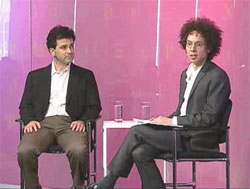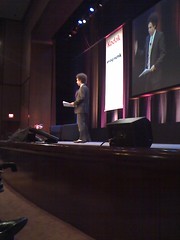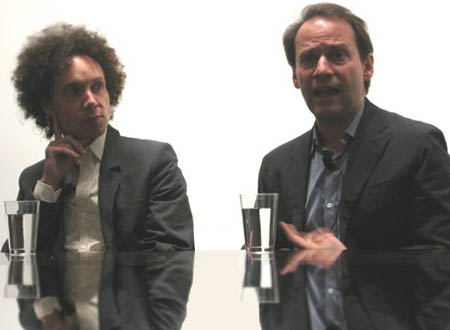Hungry? Eat Popcorn
The interesting thing about the claim of a subliminal influence contained within popular music when played backwards is that the messages are very difficult (if not impossible) to discern unless you’ve been primed to hear them on a conscious level.
I’ve been receiving emails wanting to know how this apparent lack of influence ties in with research that demonstrates subliminal messages can coerce unwary buyers into making purchases they would not otherwise have considered?
A short story is in order, (stop me if you’ve heard this one) Fort Lee, N.J., 1957. Unsuspecting film goers are enjoying “Picnic”, with William Holden and Kim Novak. In the projection room, an important marketing experiment is being staged. Researcher James Vicary has installed a tachistoscope, a machine that can inject subliminal images of tiny fractions of a second—far below that of a person’s conscious threshold. Every five seconds and for a duration of just 1/3000th of a second, Vicary alternated two messages. One read, “Drink Coca-cola” and the other, “Hungry? Eat Popcorn”.
Vicary’s results were spectacular! Coca-cola sales jumped 18.1%; popcorn sales 57.8%. Vicary dubbed this “subliminal advertising”, the practise of manipulating consumers to make purchases they might not normally make.
And if you believe that, I’ve got a pet rock I’d like to sell you.
The great popcorn experiment was a fraud.
Advertisers and regulators doubted Vicary’s story from the beginning, so another researcher, Dr. Henry Link, duplicated Vicary’s experiment and found no evidence that people reacted to the messages. In a 1962 interview, Mr. Vicary admitted the data was all fabricated to gain attention for his business. Some critics have since expressed doubt that he ever conducted the experiments at all.
However, the legend lives on. To this day a great many people still believe Vicary’s claims and will apparently never be convinced otherwise.
As numerous studies over the last few decades have demonstrated, subliminal advertising doesn’t work; in fact, it never worked, and the whole premise was based on a lie from the very beginning.
It is possible to prime the unconscious.
According to a recent experiment, psychologists at Yale were able to alter people’s judgments by simply priming them with either hot or cold coffee.
The study participants, college students, had no idea that their social instincts were being deliberately manipulated. On the way to the laboratory, they had bumped into a laboratory assistant, who was holding textbooks, a clipboard, papers and a cup of hot or iced coffee and asked for a hand with the cup.
That was all it took: The students who held a cup of iced coffee rated a hypothetical person they later read about as being much colder, less social and more selfish than did their fellow students, who had momentarily held a cup of hot java.
As improbable as it may seem, findings like this one have continued to pour forth in psychological research in recent years.
New studies have found that people tidy up more thoroughly when there’s a faint tang of cleaning liquid in the air; they become more competitive if there’s a briefcase in sight, or more cooperative if they glimpse words like “dependable” and “support” all without being aware of the change, or what prompted it.
The article goes on to remind readers that, “studies of products promising subliminal improvement, for things like memory and self-esteem, found no effect”.
If you’re interested in this sort of thing, I recommend reading Malcolm Gladwell’s book, Blink—here’s a very short audio snippet from chapter 2 (650k mp3).


 Cultural phenomenon Malcolm Gladwell gave a talk at the New Yorker Conference 2012: Stories From the Near Future. His talk
Cultural phenomenon Malcolm Gladwell gave a talk at the New Yorker Conference 2012: Stories From the Near Future. His talk 